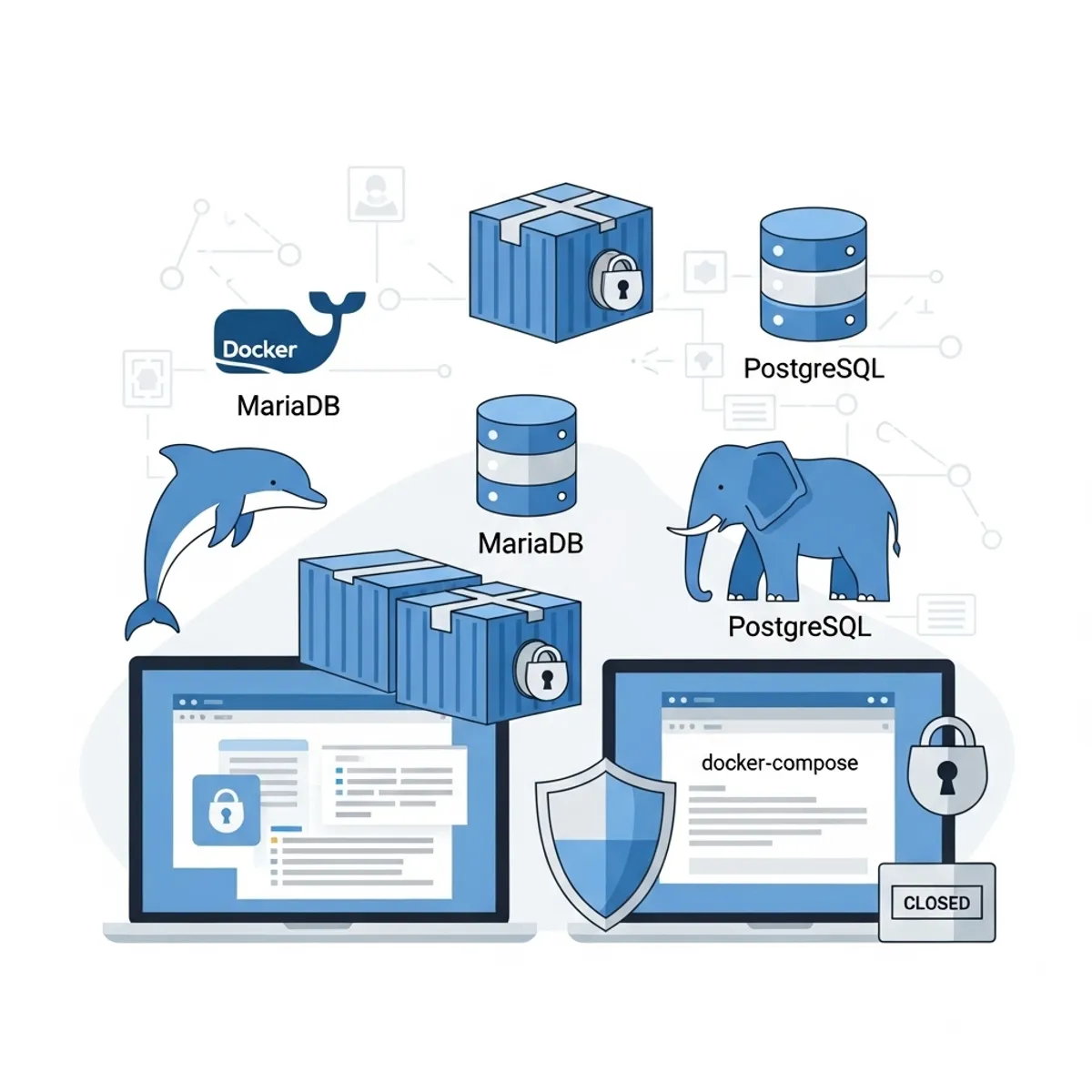
Creating a Local, System-Independent SQL Environment with Docker
As someone who works across both data systems and network infrastructure, I often need access to SQL environments without relying on my OS to manage those services directly. I wanted something:
- Fast to spin up
- Easy to stop when not in use
- Secure (no services running on open ports 24/7)
- Fully portable across systems
The answer? Docker.
Why Go System-Independent?
Most developers install MySQL, MariaDB, or PostgreSQL directly on their OS. That works… until:
- You want to switch between multiple versions
- You’re working on multiple projects with different DB needs
- Your local services eat up CPU, RAM, and ports—even when idle
By containerizing your databases, you get isolated, on-demand environments. It’s a best practice that mimics real-world deployment.
My Setup: MariaDB and PostgreSQL with Docker
I keep all my SQL containers organised in ~/Docker on my Linux system.
~/Docker/
├── mariadb/
│ └── docker-compose.yml
└── postgresql/
└── docker-compose.yml